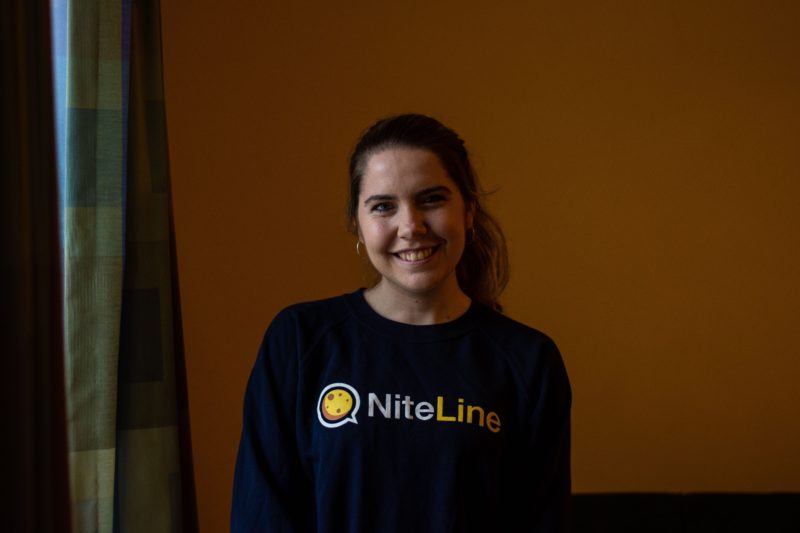
Conversations around student mental health in Ireland have been accelerated by the implementation of semesterisation in many Irish third-level institutions and the ever-increasing workload that has come with it. With stress levels rising, the need for student resources and support has never been greater.
One organisation at the forefront of this movement is Niteline, a service run completely by third-level students, for third-level students. According to its website, Niteline is “here if you ever feel that you would like to talk to someone that will listen, accept and understand without judging”. It invites students of its affiliated colleges to reach out anonymously using its telephone and online messaging platforms, and is open every night during term-time.
Speaking to The University Times, Charlotte Brosnan, the organisation’s public face in Trinity, emphasises anonymity as being a cornerstone of its operation. The final-year psychology student explains that having anonymous volunteers “means you don’t have to worry that you are talking to someone who’s going to spread what you’ve told”.
Total anonymity also removes the potential burden on volunteers to check in on callers. Brosnan explains that, from a volunteer’s perspective, this is both a blessing and a curse. “You have no option but to kind of let it go and hope for the best for them”, she says, “but at the same time if they’ve told you something really distressing, part of you wants to check-in in a week’s time and be like: ‘How are you doing?’ But there’s no way of doing that”.
Anonymity, Brosnan explains, allows students to have conversations they wouldn’t normally feel comfortable having, even with close friends or family. Referring specifically to those who call about suicidal thoughts, Brosnan says that volunteers refrain from giving direction and focus instead on asking the caller what exactly got them to that point. “They won’t tell you what to do or how to act”, she explains. “They’re just there to give you a space in which to talk.” It gives students the chance to discuss sensitive topics without fear of being judged by peers or family members.
If you’re the person with the problem it can seem really daunting to reach out because it’s a scary thing to do. I think it’s worth it
Brosnan first got involved in Niteline in her third year, when she saw some of its ads around campus. It was quite “intimidating” at the start, she says, but she gained more confidence after completing the training process. Acknowledging that getting involved in the organisation may seem like a daunting prospect, she assures potential applicants that Niteline provides a positive atmosphere for volunteers.
“Everyone in the service is so helpful”, she says. “You don’t feel like you have to take any call on your own, and you’re never on your own doing anything.” Volunteers typically take on two or three shifts a month, but as a student-run organisation Niteline understands the need for students to take a break during times of high-stress. The College’s counseling service also provides extra support to volunteers in need of a chat.
To any person who feels intimidated by the prospect of calling an anonymous helpline, Brosnan gives the following advice: “If you’re the person with the problem it can seem really daunting to reach out because it’s a scary thing to do. I think it’s worth it [to call]. It sounds really cliched but as soon as you’ve spoken about a problem, it’s less of a burden on just you. It’s easier to process in your head once you have spoken about it.” The online messaging service removes the fear of being identified by your voice, or your housemates overhearing the conversation.
Part of Brosnan’s role as a public face is to raise awareness about the organisation and humanise it to students. She, along with her colleagues in its other affiliated colleges, hopes to hold talks on self-care and what it is like to volunteer with the organisation. According to her, the aim is “to let you know that it’s all students – just nice people – and not robots”.
If you are interested in using the service, call 1800 793 793 on weekdays between 9.00pm and 2.30am, or visit niteline.ie.






